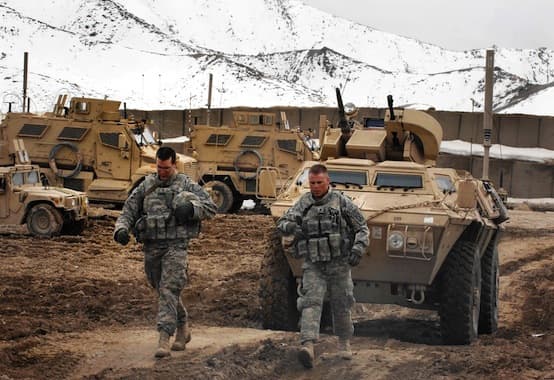
Reports have surfaced recently that the White House is instructing its senior diplomats to begin seeking “direct talks with the Taliban.” It’s a measure that would have been unthinkable at the start of the Afghanistan war yet today it’s long overdue. Despite the criticism it’s elicited, such talks offer the best chance of ending America’s longest and most futile war.
While there is broad agreement that American leaders were justified in launching military operations in Afghanistan following the 9/11 attacks, it’s painfully evident after 17 years that no one has any idea how to end the fighting on military terms.
Possibly the biggest impediment to ending the war has been the definition of the word “win.” General Stanley McChrystal said in 2009 that winning in Afghanistan meant “reversing the perceived momentum” of the Taliban, “seek[ing] rapid growth of Afghan national security forces,” and “tackl[ing] the issue of predatory corruption by some” Afghan officials.
Nine full years and zero successes later, however, Lieutenant General Austin S. Miller, latest in line to command U.S. troops in Afghanistan, defined as America’s “core goal” at his confirmation hearing that “terrorists can never again use Afghanistan as a safe haven to threaten the United States.”
- In Afghanistan, Hoping the 17th General is the Charm
- Can We Admit Now That Afghanistan Reconstruction Failed?
The reason McChrystal failed to end the war—and Miller will likewise fail—is that these objectives can’t be militarily accomplished. Predicating an end to the war on such is to guarantee perpetual failure. A major course correction is therefore in order.
Keeping 15,000 U.S. troops on the ground in Afghanistan does not, in any way, prevent terror attacks against the United States from originating there—and for this lack of success we will pay at least $45 billion this year alone. The real solution is therefore to withdraw our troops as quickly as can be safely accomplished rather than throw more of them into a fruitless conflict.
I personally observed in 2011 during my second combat deployment in Afghanistan that even with 140,000 U.S. and NATO boots on the ground, there were still vast swaths of the country that were ungoverned and off-limits to allied troops.
Meaning, at no point since October 2001 has American military power prevented Afghanistan from having ungoverned spaces. What has kept us safe, however—and will continue to keep us safe—has been our robust, globally focused intelligence, surveillance, and reconnaissance capabilities that work in concert with the CIA, FBI, and local law enforcement to defend our borders from external attack.
Many pundits claim that if the U.S. military withdraws from Afghanistan then chaos will reign there—and that is almost certainly true. But that’s how we found Afghanistan, that’s how it is today, and—wholly irrespective of when or under what conditions the U.S. leaves—that’s how it will be long into the future until Afghans themselves come to an accommodation.
The question U.S. policymakers need to ask is which is more important to American interests: the maintenance of a perpetually costly war that fails to prevent any future attacks, or ending America’s participation in that war?
Continuing to fight for a country that can’t be won cements a policy that has drained the U.S. of vital resources, spilled the blood of American servicemembers to no effect, and dissipated the Armed Forces’ ability to defend against potentially existential threats later on—while in the meantime not diminishing the threat of international terrorism. To strengthen our national security, we must end the enduring policy of failure by prudently and effectively ending our military mission.
While the fundamentals of a withdrawal plan are relatively straightforward, they would still be met by considerable opposition. One of the arguments against leaving was voiced by McChrystal nine years ago when he pleaded with the American public to “show resolve” because “uncertainty disheartens our allies [and] emboldens our foe.” Yet the facts can’t be denied any longer: for all eight years of the Obama administration and the first 500 days of Trump’s tenure, we maintained that “resolve” and were rewarded with an unequivocal deterioration of the war.
Since McChrystal’s admonition to maintain the status quo, the Taliban have exploded in strength to reportedly 77,000, more territory is now in the hands of the insurgents than at any point since 2001, the Afghan government remains one of the most corrupt regimes on the planet, and civilian casualties in the first half of 2018 are the highest ever recorded.
The only way this permanent failure ends is if President Trump shows the courage he has sometimes demonstrated to push back against the Washington establishment. That means ignoring the status quo that holds our security hostage, ending the war, and redeploying our troops. Without that resolve, we can count on continued failure in Afghanistan. With it, American security will be strengthened and readiness improved.
Daniel L. Davis is a senior fellow at Defense Priorities and a former lieutenant colonel in the U.S. Army who retired in 2015 after 21 years, including four combat deployments. Follow him on Twitter @DanielLDavis1.
Sourse: theamericanconservative.com






